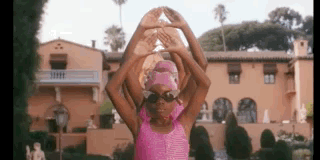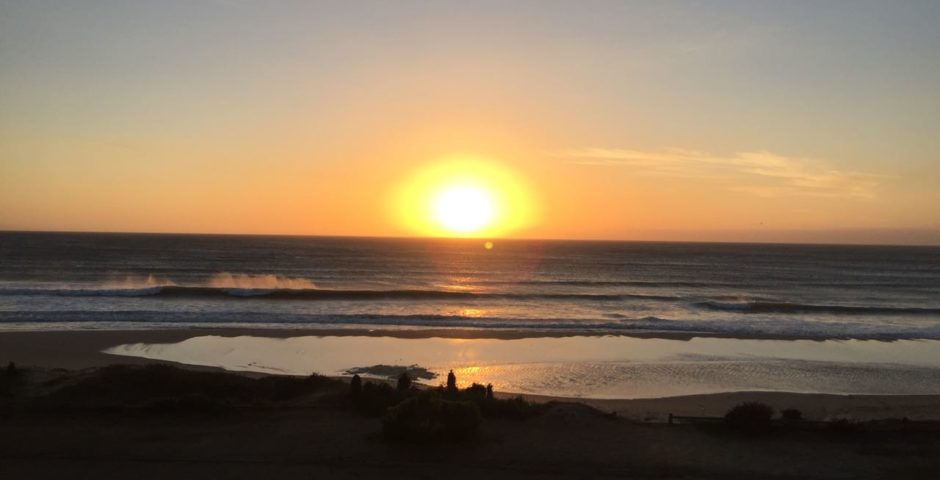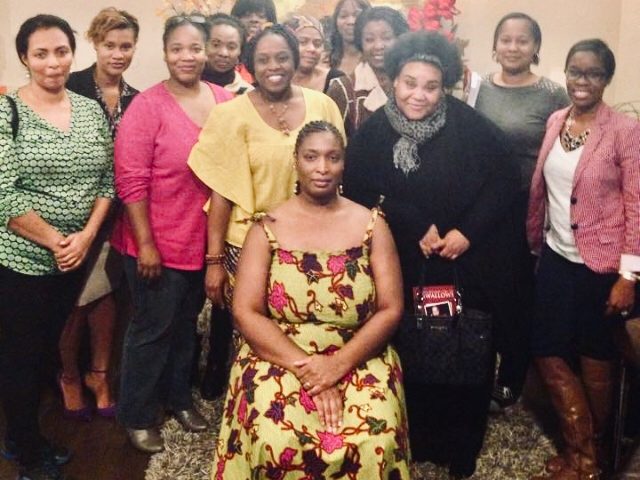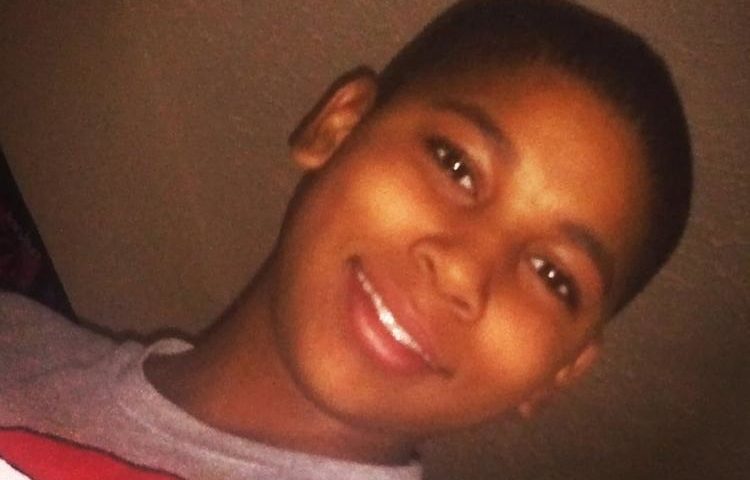
Black Is King and We All Squabbling Like Peasants
“…you engaged with that tweet while demonstrating a woeful lack of comprehension…Have a good day.”
My husband looked up from his work, amused as I finished firing off a missive, shut my laptop and rubbed my temples. What now, he wanted to know. I launched into an explanation about how the online conversation about Black Is King, the Beyoncé film we’d chosen for our family movie night, had veered into the ridiculous. I hadn’t come to my conclusion when I was interrupted by a video call. It was my cousin, Naa. She NEVER video calls me. Was she hurt? I answered with trembling fingers.
“What’s wrong? Are you ok?!”
“You?” she snapped. “I have your time today. What do you mean by ‘Noname has a point’? Let’s box!”
“You really called to fight me, cuz?”
She really had. Which was fine. The great thing about my relationship with Naa is that we’re both passionate about and ready to defend our beliefs, and neither is scared of the other. But above that, we care about each other. No matter what was said between us, it was going to end in a hug.
This was the offending tweet about which she had called to verbally behead me over.

As this is a conversation about Beyoncé, let’s start by giving the givens. There is no doubt that Beyoncé Knowles-Carter, first of her name, is one of – if not the – hardest working entertainers in the industry. She is the best because she surrounds herself with the best. Those of us of a certain age and generation have watched her rise through the ranks, from when Destiny’s Child was a four-girl group, to the trio known as Beyoncé n Dem, to the Queen Bey we all know her as today. Though I’ve never been a fan of her vocal ability (which has improved immensely over the years with excellent training), I have always admired her grit and resolve.
I will tell you a story. There once was a viral video of a resplendent Beyoncé, clad in a crimson sequined gown descending a set of stairs built on stage at a concert. As she belted out melody, she tripped and went crashing to the ground, one step after another. The crowd gasped as she stood to her feet, bloodied…and still singing. Beyoncé never regained composure, because she never lost composure. She missed neither a note nor a beat. (This was around 2001/2002 when Matthew Knowles had the power to make anything disappear, including said viral video.)
I don’t know much about the reality that Beyoncé inhabits, whether her art is a reflection of her life or the seemingly boundless limits of her creative mind. What I do know is that a lot of her music and art is aspirational, fantastical even. The ubiquitous anthem Run the World (Girls) exists in a time when there 116 rapes a day in South Africa, where female infanticide is rife all over Asia and where women still earn a fraction of every dollar earned by men. Her 2019 documentary, Homecoming used the HBCU homecoming experience as fodder for its extravagant vision. Beyoncé, by her own admission, has never attended university. But she reimagined the grandness of that experience and created it. Which brings us now to Black Is King (BIK), a stunning visual portrayal and re-imaging of The Lion King, told through afrobeats, gospel, operatic and kwaito genres.
The unfortunate reality is that we’ve turned BIK into another opportunity for Africans and African Americans to fight. One would hope that we might engage with Beyoncé’s art for art’s sake, but our collective fractured identity as Black people – globally – makes this impossible. In a world where our languages, traditions and mores are being erased and diluted, art remains one of the last bastions of our historical truth and reflections of identity. The issue of who controls (or when it comes to Beyoncé, has the right to critique), that aspect of identity is a hotly contested one; one that has made the conversations surrounding Beyoncé’s newest collaboration such a personal one. To my mind, that is a good thing. The visceral reactions to Black Is King has shown that we still need to interrogate within ourselves what inspires so much rage and/or glee when Africa is on screen. The fraternal twin systems of slavery and colonialism blotted out huge chunks of our personhood, leaving us forced to cobble together definitions of what it means to be Black in our individual contexts.
The concept and representation of African culture has been a thorny subject for many years. There are some who, in a quest for Pan-Africanism – believe that all Black people should abandon their unique cultures and forge a singular identity as “African”. I am part of the camp that considers this not only unattainable, but foolish and dangerous. To quote Naana Opoku-Agyemang, we are stronger because of our diversity. Black Houston culture is different from Black Ohio culture is different from Somali culture is different from Caribbean culture… and while they may have commonalities, they do not constitute “African culture”. Like the kingdom of Wakanda, the concept is a myth, and delusions will not aid us in our quest for liberation. We cannot afford to destroy the strength of our diversity in favor of a milk toast, generic identity when we really don’t know who are ancestors were and therefore who we are at our core.
Just before I went to bed last night, the religious fanatics and conspirators entered the group chat. One woman noted that while she thought BIK was beautiful, she couldn’t help but feel that she was watching something demonic. One chap had this to offer.
Spirituality plays an enormous role in the human identity, and nowhere is this truer than with indigenous cultures. Yet it is curious how Black spirituality and practices always find themselves demonized by those completely under the influence of white western culture. You may find on your social media pages a curious consternation about the use of paint and color on African bodies in reaction to BIK. Interestingly, a Japanese geisha does not inspire the same terror as a sangoma, though they are both painted white. (Both tie into the ongoing conversation about the female form, aging, adornment and the concept of evil/witchcraft.)
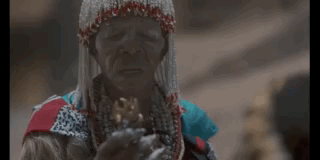
We need to address why a white girl can fall in love and procreate with a vampire to international fanfare, but a Black woman with a hairdo resembling a cow’s horns in somehow an agent of Satan.
What is the African’s vision for the future? You cannot have a conversation about Beyoncé – as artist and/or individual – and exclude capitalism. The continent is the perfect case study to prove why capitalism in its purest form doesn’t work. Many years ago, a young man asked if we could work on a project together. Anything, he said. At the time, I was interested in futurism so I asked him to imagine Ghana in 300 years. What would it look like in his estimation? His response? “We would have running water and constant electricity.” I encouraged him to imagine beyond that. He couldn’t. I haven’t been in touch since. His vision, in my view, was too anemic.
I wanted him to think about what technology we might develop; what systems of government we might reconstruct; what potential in our physical bodies might we have unlocked in that time? These were far more aspirational! Whenever I’ve revisited that exchange, I am awash with shame. Who was I to impose my vision of a futuristic Ghana on him? If his vision could only go as far as pipe borne water, how was that problematic?
Beyoncé, Blitz & Co conceived and presented us with their version of an opulent Africa, which is not outside the realm or possibilities. Much of the continent’s wealth is either exported or hoarded, leaving the masses needlessly impoverished. We could all have pipe borne water and chromed out Kantanka SUVs (not my thing)…but only if we retool/abolish the oppressive economic systems under which we live and are controlled.
Chinese media produce films with flying martial artists who can disappear within a cloud of smoke and no one bats an eyelash. Our economic oppression has forced us set our sights low. We have not had the luxury of indulging in fantasy. No wonder the eccentric concepts presented in Black Is King makes so many people uncomfortable.
There are many more points that warrant discussion, but I want to circle back to Noname’s tweet in order to conclude. I stand by her, because she makes a valid point. Unlike many other people, I did not take her tweet to be a direct attack on Black Is King, or wishing to promote poverty porn, but rather as imploring us to consider it as part of a larger and ongoing conversation. We do love an African aesthetic draped in capitalism. This is also known as the ‘Africa they never show you’ syndrome, the one that performs for the western gaze. It is a philosophy that propagates the notion that the evidence of our humanity is demonstrated through the building of high rises and an abundance of vehicular traffic.
Hope we remember the blk folks on the continent whose daily lives are impacted by u.s. imperialism. Not five days ago, a scrawny man jumped over our wall and approached our house. He said he was looking for food, but we’ve been burgled so many times living in South Africa that it was hard to believe he had not come to scout out the house in hopes of robbing it later. My husband threw him out (literally). I think about that man often. His features looked distinctly Khoisan, an ancient and innovative culture that was destroyed by imperialism and invading forces. Zulu, Xhosa and Khoisan culture – his culture – were also represented in this film. Like yours and mine, his ancestors’ creativity lent to the beauty that we all partook of this weekend. What considerations have we carved out for the conditions that have availed themselves to the creation of his emaciated frame? Does his African experience not also matter?
If we can uplift the imagery I hope we can uplift those who will never be able to access it…
“Let me tell you what’s happening now, Naa. We are both approaching this tweet and the topic with our own biases. Your bias is the assumption that this is a targeted attack on a singular work. My bias is that I view it as part of a bigger conversation and a problem that we as a people have not yet found a resolution to.”
She agreed.
And then she was able to share the aspects that she loved most about the film and its collaborators. I hope more of us will be able to do the same. As I have aged, I have learned that you have to meet people where they are and adjust your interactions and expectations accordingly. I hope that we will be able to strike a balance between the realities that we inhabit and the hopes that we have for the future in our discourse; no matter how unrealistic they may appear. Acknowledging one does not have to negate the other.
I loved everything about Black Is King, and I will definitely watch it again. I loved the historical references (like the Debutante Ball and Madame CJ Walker’s mansion), the bevy of little swimming Black girls, the inclusiveness (adding Asian girls to Brown Skin Girl was a sweet touch), the jewelry and choreography and Shatta. If you have a blog/IG Live/whatever and are going to talks about these things, please invite me! That’s where my heart lies.
